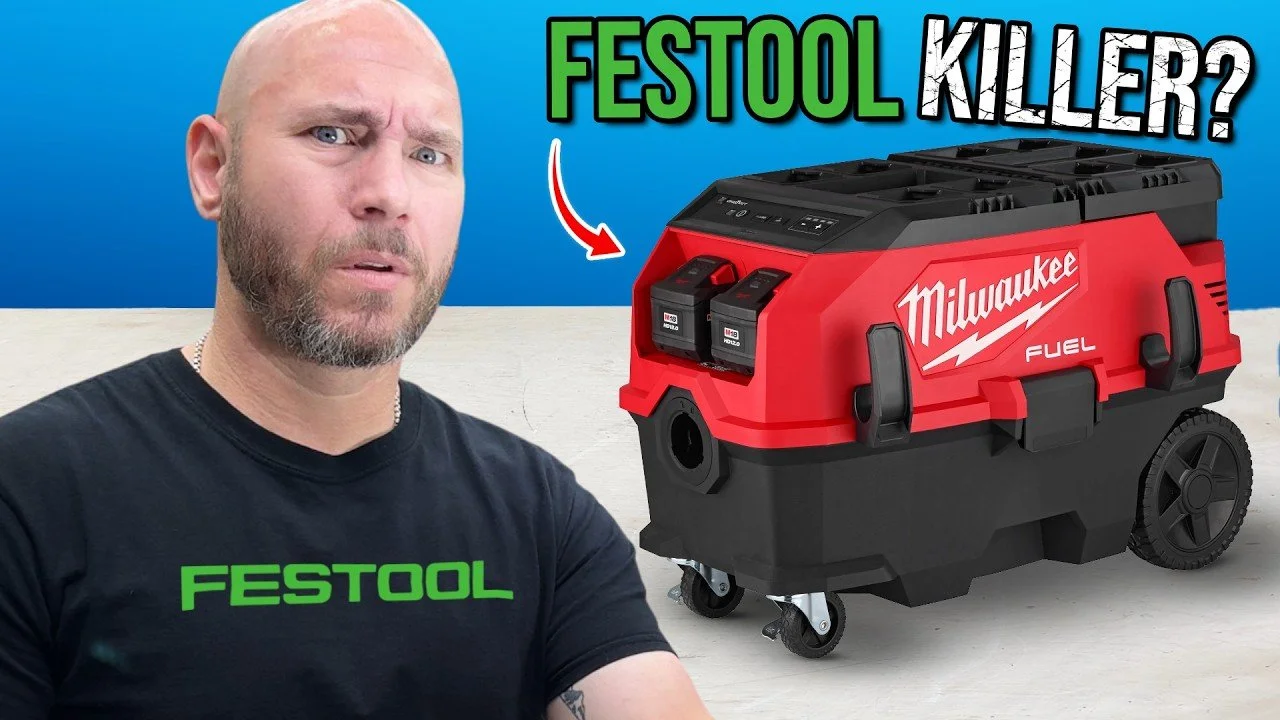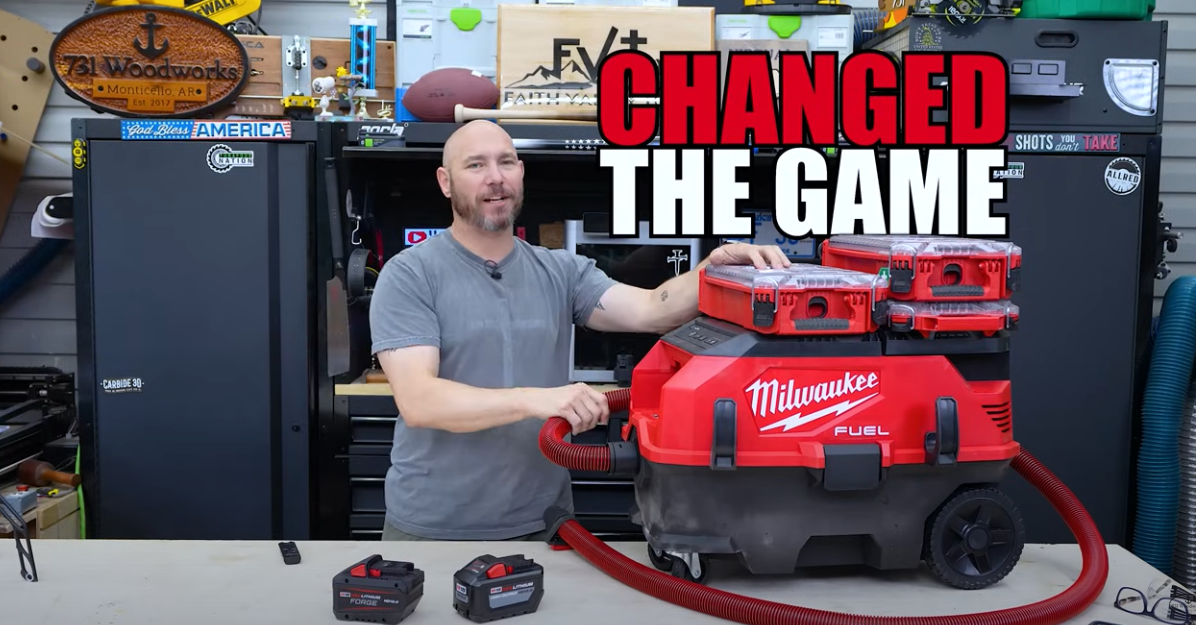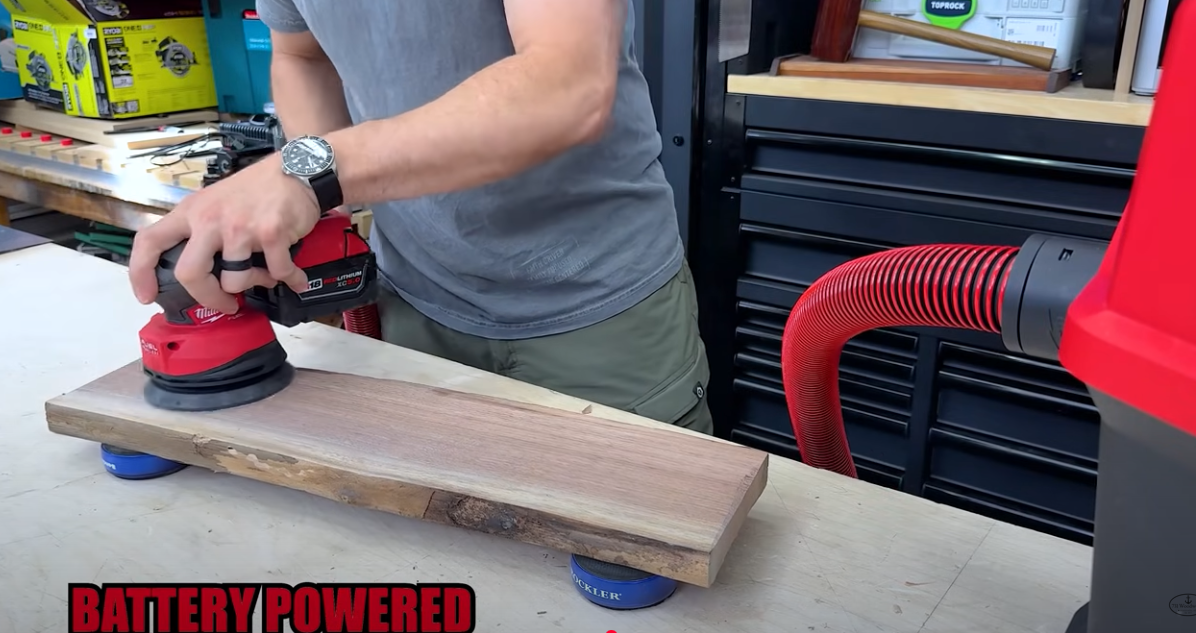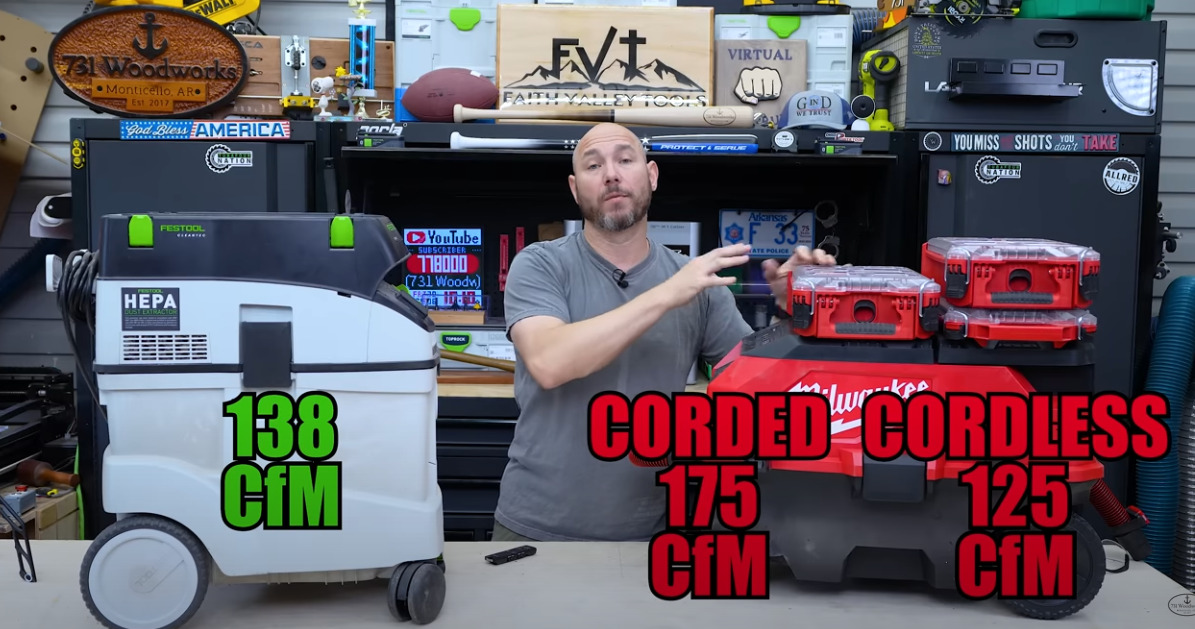Milwaukee's New Dust Extractor Review: A Game-Changing Dust Collection System for Woodworkers
If you're serious about dust collection in your woodworking shop, this new Milwaukee dust extractor might just replace your Festool. Here's why.
This post contains affiliate links, which means I may earn a small commission if you buy through them—at no extra cost to you. It helps keep the tool deals coming, so thanks for your support! Prices are valid at the time of posting but are subject to change at any time.
Watch the full Youtube Video 👉 Milwaukee's New Dust Extractor Review
Why Dust Collection Matters in Woodworking
If you've been around sawdust for more than a few minutes, you know how important proper dust collection is. Fine dust from sanding, routing, and sawing can cause serious respiratory issues, not to mention it makes your shop look like a blizzard blew through. That's where a true dust extractor makes all the difference—not just any shop vac will do.
In this post, we're digging into Milwaukee's brand-new M18 FUEL 9-Gallon Dual Battery Dust Extractor. This tool isn't just impressive—it's a legit game-changer, especially if you're tired of cords or looking to stay in the Milwaukee ecosystem.
Milwaukee M18 Dust Extractor Overview
Dual Power: Use it corded or cordless (two M18 batteries)
175 CFM (corded) / 125 CFM (cordless) suction power
HEPA Filtration with automatic filter cleaning
VACLINK Bluetooth sync with tools and remote
Packout-compatible for jobsite or shop organization
Check it out here:
First Impressions: Fit, Finish, and Features
When I pulled this thing out of the box, my first thought was: "Festool might be in trouble."
Assembly is minimal: Snap on hose hangers and attach the hose. That’s it.
Hose adapters included: Fits sanders, routers, and most table saw ports
VACLINK remote: Clip it on your belt, wrist, or the hose—no more walking back and forth to turn on the vac
Smooth rolling wheels and a solid set of handles for carrying around the shop
The only thing I was a little unsure about was the plastic hose. It’s not quite up to Festool's fabric standard, but it’s anti-static and held up well in testing.
Real-World Testing with Sanders, Routers, and Table Saws
I tested this Milwaukee extractor with:
Track saw, router, and table saw
Here’s what I found:
Sanding
Virtually zero visible dust while sanding walnut
When I turned it off, dust cloud immediately appeared—proving how effective it really is
Routing
Even without a dust shroud, it captured most of the dust from a roundover bit
Table Saw
Performed great with corded power (175 CFM)
Adapters didn’t fit DeWalt tools, but a 3D-printed adapter fixed that
Track Saw
Corded power noticeably better than battery mode
Easily rivals Festool CT36 in collection efficiency
Corded vs. Cordless: What You Need to Know
Corded mode = 175 CFM
Cordless = 125 CFM
Runs fine even with no batteries installed if plugged in
VACLINK supports multiple tools and a remote simultaneously
Battery Options:
Claims: up to 78 mins runtime with 2 Forge batteries
Milwaukee vs. Festool: Side-by-Side Comparison
So how does the new Milwaukee extractor really stack up against the Festool CT36? Here’s the breakdown:
Power: Milwaukee offers both corded and cordless operation, while the Festool CT36 is corded only. If you need flexibility on the jobsite, that’s a big win for Milwaukee.
Suction: When plugged in, Milwaukee delivers up to 175 CFM compared to Festool’s 138 CFM. On batteries, it drops to 125 CFM—still impressive.
Hose: Festool’s fabric-covered hose is more flexible and arguably more premium than Milwaukee’s anti-static plastic hose.
Filter Cleaning: Both extractors include automatic filter cleaning, which keeps performance consistent over time.
HEPA Filtration: You’ll find true HEPA filtration on both machines—a must-have for fine dust control.
Remote Sync: Milwaukee’s VACLINK works with Bluetooth tools and includes a remote. Festool's version syncs only with corded tools.
Tool Power: Festool includes an onboard power plug for your corded tools. Milwaukee doesn’t.
Price: The Milwaukee extractor comes in around $799 for the bare tool. The Festool CT36 with auto-clean is closer to $1,035.
Bottom line? If you’re looking for portability, flexibility, and a little more suction, Milwaukee takes the edge. But if you prefer the tried-and-true Festool system and don’t mind the cord, it’s still a top-tier choice.
What I Loved
Dual power capability
Packout integration
VACLINK system is a huge time-saver
Dual HEPA filters
Adjustable suction
Smooth-rolling wheels
Compact but powerful
Reasonably quiet for the power
What Could Be Better
The hose isn’t as flexible as Festool’s
No included floor cleaning kit
Premium price—especially if you need the full combo
Final Thoughts: Should You Buy It?
If you're a serious woodworker who values dust control, this new Milwaukee dust extractor is absolutely worth a look. It hits a sweet spot between premium performance, flexibility, and smart shop integration. And that dual power option? Game changer.
Get yours here:
Want more deals like this? Sign up for my Daily Tool Deals Email List and never miss a great buy.








